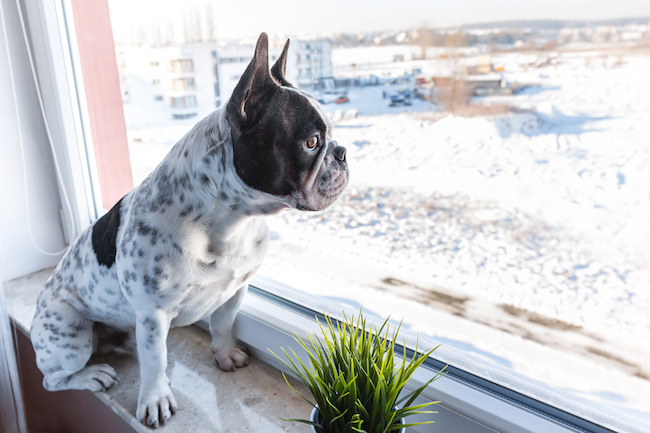
Indoor pets aren’t for everyone. Some people simply don’t have the living space to accommodate a rowdy pup or a whiny cat inside when they are longing to romp in the backyard. Though many people view dogs as family members, others see them as hunting buddies, rat-catchers, or simply functional parts of the household. Pet owners who care for activity-oriented breeds that require hours of exercise daily, but are not able to afford the time to provide this because of a busy work schedule, might opt to leave their pup in the yard all day instead of inside. Whatever the reason may be, here are some considerations as to why this is not the most advisable option.
Escape: Dogs are smart (especially these intelligent breeds) and if given enough time and boredom, can devise numerous ways to attempt an escape. Some pet-owners have reported missing dogs, only to later find a well-concealed tunnel the dog must have been working on for weeks prior to his getaway. Canines can also clear surprising heights when they are motivated or agitated enough; not all fences are effective barriers. Keeping a dog indoors removes the opportunity for him to plot and pursue an escape route. *NOTE: Here are some tips what to do if your dog runs away.
Predators: It is tragic how many small dogs lose their lives to ruthless predators. Even city-dwellers have lost their fluffy Bichon Frise pups to coyotes, and rural homes have to consider mountain lions, hawks, or even snakes. In some cases, neighboring dogs (such as Pit Bulls, Rottweilers and the like) have been known to attack the smaller breed of a neighboring dog. *NOTE: Additionally, neighbors themselves are a reason not to leave your dog outside. If the pup barks often, or you suspect may annoy your neighbors, they might yell at him, or harm him when you are not there. Some malicious neighbors might even install an ultrasonic sound emitter right next to your backyard, causing your pup constant audio discomfort, without you even knowing about it.
Stranger Danger: Fortunately the threat petnapping is far less common, but thievery does still occur. Some breeds can be quite expensive dogs, making them easy targets for people looking to re-sell for a profit. If the dog is especially young (3-6 months) or a highly sought-after breed (such as a French Bulldog or German Shepherd, etc.) they might be a tempting prize for someone with wicked intentions. In order to frustrate any such schemes, keep a dog indoors unless the owner is present.
Diseases: With an abundance of ticks and bugs around, pups are subjected to Lyme’s disease if they are not regularly checked and monitored when playing under trees or in long grass. Rodents carry diseases, and animal waste left by other creatures or feral cats might have possibly life-threatening worms that can also infect your pooch. It is better to keep your dog safely inside, to avoid possible infections and ailments.
Environmental Hazards: Dogs who are primarily outside pets are subjected to whatever the weather patterns of the day might be. If they do not have shelter, they could get a chill if caught in the rain, or may suffer without respite from the sun. For certain dogs, this kind of circumstance can be life-threatening as brachiocephalic breeds (dogs with shorter noses) can easily overheat and die. Areas that are subject to thunder storms (which routinely cause stress in pets), hurricanes, flash floods, fires, etc., can be dangerous for dogs left outdoors.

